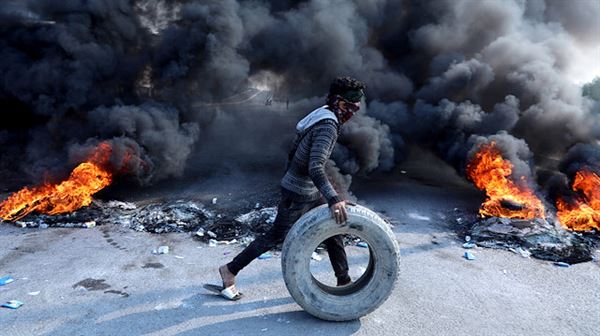Protesters burned tyres and surrounded a police station in the southern Iraqi city of Nassiriya on Saturday, a Reuters witness said, pressing their d
Protesters burned tyres and surrounded a police station in the southern Iraqi city of Nassiriya on Saturday, a Reuters witness said, pressing their demands for sweeping reform despite the prime minister promising to resign.
Prime Minister Adel Abdul Mahdi announced his resignation on Friday after a call from the country’s top Shi’ite Muslim cleric for the government to step down to end weeks of deadly unrest.
Security forces have used live ammunition, tear gas and stun grenades against protesters for nearly two months, killing more than 400 people including scores in recent days, particularly in Nassiriya.
The city was the scene of the worst violence to hit war-weary Iraq since anti-government protests began in Baghdad on Oct. 1.
The burning by demonstrators of the Iranian consulate in the southern holy city of Najaf on Wednesday escalated unrest and led to Abdul Mahdi’s resignation. In Nassiriya, deadly clashes erupted on Thursday hours after the torching of the Najaf consulate.
Parliament has yet to make Abdul Mahdi’s resignation effective and will convene on Sunday to pass a vote of no confidence in him.
However, Abdul Mahdi’s promise to quit will not satisfy protesters, who are demanding the overhaul of a political system that they say is corrupt and keeping them in poverty and without opportunity.
Many Iraqis fear violence will continue to escalate as angry families mourn dead relatives and the government moves slowly to enact very little reform.
Weeks of political wrangling are expected before a successor to Abdul Mahdi is picked and a new government formed.
Iraq’s semi-official Human Rights Commission said in a statement on Saturday that those responsible for the killings of protesters must be brought to justice and that it would gather evidence for prosecution.
The statement did not acknowledge the prime minister’s resignation.
The International Committee of the Red Cross urged a halt to rising casualties.
“Firearms and live ammunition must only be used as a last resort,” it said in a statement.
